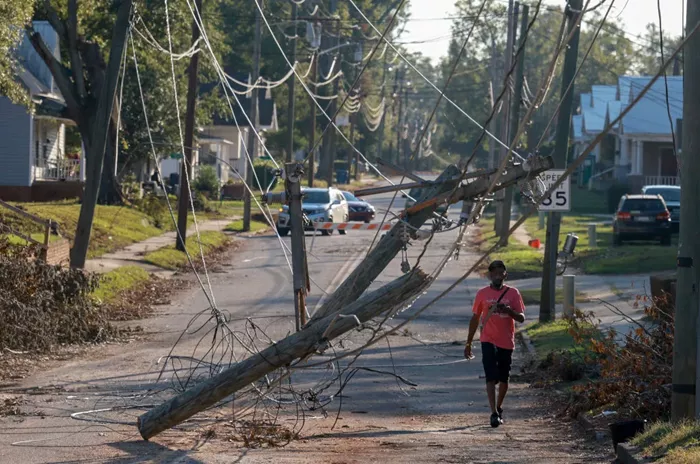With the inauguration of President-elect Donald Trump fast approaching, universities across the U.S. are adjusting their guidance for international students who may be affected by potential changes to immigration policies. Some schools are urging foreign students to return to the U.S. from international holiday travel before Trump takes office, as his past administration attempted to curtail both illegal and legal immigration.
Cornell University, for example, issued a travel advisory in late November, predicting a likely travel ban to be imposed soon after the inauguration. The university recommended that international students and staff return to the U.S. before the spring semester begins, to avoid disruptions. During his first term, Trump’s administration not only focused on restricting illegal immigration but also introduced policies that slowed the legal entry of foreign visitors and students reliant on visas.
Concerns Over FAFSA and Immigration Enforcement
Another area of concern is financial aid. Advocacy groups and independent college counselors have noted an increased anxiety among students from mixed-status families—those with members of varying citizenship statuses—over applying for federal student aid. These students are worried that disclosing a lack of Social Security numbers on the Free Application for Federal Student Aid (FAFSA) may signal undocumented status, which could expose them to immigration enforcement, despite federal privacy laws that protect such information.
The National College Attainment Network recently highlighted these fears in a memo, cautioning that the data provided in the FAFSA process might not be as secure as previously assumed. The organization stated that for some families, the risk of revealing their immigration status may now outweigh the potential benefits of receiving federal aid.
Corinne Kentor, from the Presidents’ Alliance on Higher Education and Immigration, reported a surge in inquiries from college leaders seeking reassurance on how FAFSA data will be used. While legal experts suggest that using FAFSA data for immigration enforcement would face significant hurdles, the uncertainty is contributing to widespread unease, particularly among immigrant communities.
Universities Striving to Balance Information with Reassurance
Stephen Yale-Loehr, an immigration law professor at Cornell University, said that universities are striving to provide clear information without creating unnecessary panic. His school’s guidance includes warnings that countries previously affected by Trump’s first travel ban—such as Iran, Syria, Nigeria, and Venezuela—could see renewed restrictions, with China and India potentially added to the list.
For international students on “F-1” visas, Cornell advised preparing for longer visa processing times and ensuring they have proper documentation when returning to the U.S. after traveling abroad. Other universities, including Yale, the University of Massachusetts Amherst, and MIT, have issued similar advisories, urging students to return by January 20, before Trump officially takes office.
The Impact on International Enrollment and Financial Aid
The heightened concern comes at a time when international student enrollment in U.S. colleges is at an all-time high, recovering from previous years of decline. Data from the Institute of International Education shows a 7% increase in international student enrollment from the previous year, bringing the total number to over 1.1 million.
Though the exact impact of Trump’s second term immigration policies on these enrollment numbers remains unclear, advocates like Fanta Aw, executive director of NAFSA: Association of International Educators, continue to emphasize the economic benefits international students bring to the U.S. The tens of billions of dollars these students contribute to the economy are significant, she noted.
Challenges for Mixed-Status Families in Navigating FAFSA
Despite the barriers they face, hundreds of thousands of students from mixed-status families still apply for federal student aid every year. However, these students were hit hardest by glitches in the FAFSA process during the last enrollment cycle. The U.S. Department of Education, underestimating the number of people requiring manual identity verification, caused significant delays for many applicants, particularly affecting students from mixed-status families.
Although the department later allowed parents without Social Security numbers to complete the FAFSA, the incoming president’s promises of mass deportations have reignited anxiety among applicants from vulnerable populations.
Experts stress that federal law protects FAFSA data and prohibits its use for purposes other than determining financial aid eligibility. However, the Education Department does share data with the Department of Homeland Security to verify the immigration status of applicants, which has raised concerns among advocates. They argue that any attempt to use this information for immigration enforcement would face substantial legal challenges.
Despite these reassurances, the ongoing debate has had a chilling effect on students. Hugo Que, director of college access at 10,000 Degrees, a nonprofit helping low-income students apply to college, understands these fears firsthand. As a former undocumented individual, he acknowledges the uncertainty and the challenges students face in navigating this complex situation.
“I wish I could say with confidence, ‘Don’t worry about it,’” he said, “but we can’t speak with certainty.”
Related topics:
- Florida’s Immigration Crackdown Leaves Migrants and Citizens Struggling, Study Reveals
- Trump Appoints New ICE Chief and Unveils Latest Immigration Plans
- Republicans Blast Biden’s Migrant Parole Program as ‘Full of Fraud’


